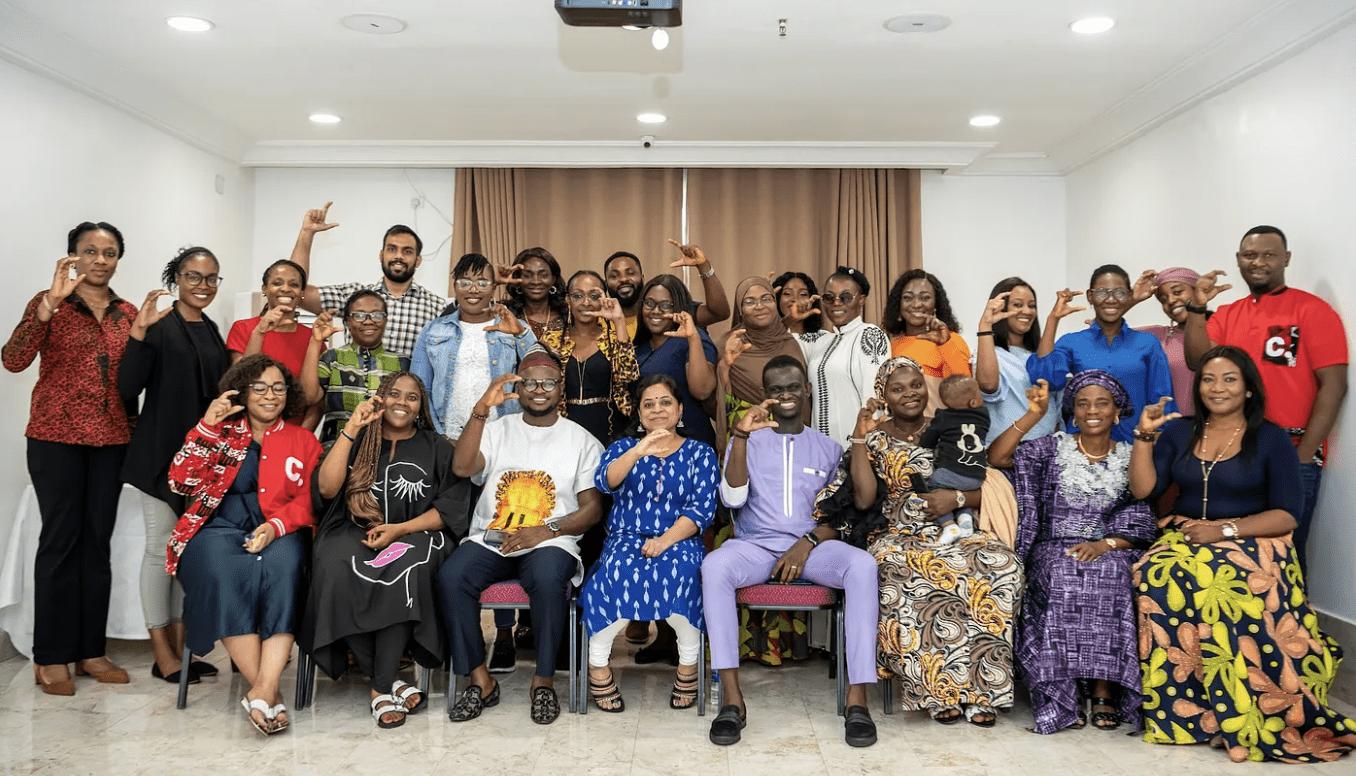Seeking the removal of tax on period products; the declaration of a state of emergency on girlchild education in Borno State; the passage of a law to allow women in Imo state to inherit property; compulsory genotype testing to reduce sickle cell disease; and increased childcare support for single mothers. These are just some of the changes Nigerian changemakers seek from those in government.
This International Women’s Day, 8 March 2023, the world is celebrating womanhood under the theme “DigitALL: Innovation and technology for gender equality”. Change.org is committed to supporting women leaders with digital advocacy and campaigning skills to drive change on the issues they care about. Through flagship programs, She Creates Change and We Create Change, over 60 women and youth leaders have been supported in Nigeria to amplify their voices and seek change in their respective communities.
The six campaigns featured by Change.org this Women’s day are not led by women only, as is usually the case in gender justice advocacy, in its community men are also working in solidarity for women’s rights issues in Nigeria truly embodying the spirit of #HeforShe. Change.org has also ensured that its platform has remained safe for women from all walks of life, free from abuse and harassment. The United Nations reports that a survey of women journalists from 125 countries found that 73 per cent had suffered online violence in the course of their work.
Speaking on the significance of IWD 2023, Wale Ajiboye, Country Director, Nigeria at Change.org said, “ Women have historically played an important role in numerous movements in Nigeria, including political, social, and economic ones. Fumilayo Ransome Kuti was a fierce advocate for women’s rights and a key figure in Nigeria’s independence struggle. Today, she is remembered as a pioneering leader and an inspiration to generations of Nigerian women. At Change.org, we will continue to support emerging leaders like her and women’s rights issues will continuously take centre stage in our work, and our platform will continue to be available to amplify these issues until we achieve collective victory.”
Here are six women’s rights issues on Change.org Nigeria this IWD, and how you can support them:
- Over 37 million women and girls lack access to menstrual hygiene products in Nigeria; this is according to Pauline Tallen, Minister of Women’s Affairs, Nigeria. Changeleader and content writer, Margaret Aladeselu didn’t realize what this meant until her cousin missed her JAMB examination because she couldn’t afford a pad, thereby losing one academic year. Since then, Margaret has been a champion against period poverty in Nigeria. Join 3,200 people to support her campaign which seeks action from the Ministry of Women’s Affairs: Change.org/EndPeriodPovertyNG
- In Imo State, a baby boy of one month old has more inheritance rights than a woman of 60 years. Growing up, Queen Ugwoeru, Changeleader and Programs Manager at Strong Enough Girls’ Empowerment Initiative (SEGEI), observed how her mother and aunts were sidelined during the sharing of her grandfather’s estate. Her campaign addressed to the Imo State House of Assembly is seeking a law that gives women the right to inherit in the State. Find her petition here: Change.org/FemaleRight2Inherit
- Halima Layeni, Executive Director of Life After Abuse Foundation, is applying reverse psychology to address women’s issues by addressing constraints on men’s access to mental health services. She believes that if men and boys get the mental health attention they deserve, it would lead to a safer society for women in Nigeria. Her campaign has previously been published by Time News NG, and her petition has amassed over 1,100 signatures. Find her petition here: Change.org/StopMaleSuicide
- As a #HeforShe, Activist Muhammad Muhammad is advocating for the welfare of the girlchild in Borno State. The insecurity caused by Boko Haram, kidnapping, banditry and other forms of insurgency in the Northeast region of Nigeria has increased the likelihood of girls being abducted from school with some of them never returning from captivity – and those who return suffer trauma and other forms of abuse. This has forced many girls to leave school in Borno State. Muhammad’s campaign is asking Governor Zulum to declare a State of Emergency on girl child education in the state and develop a strategy to ensure they don’t miss out on education at this critical period in their lives. Find his petition here: Change.org/GirlChildEducationBornostate
- Changeleader, Chemist, and Community Organizer Mariya Bagudo poses a pertinent question through her campaign. “Why live a life filled with pain when it can be avoided?” Mariya lost her brother to Sickle Cell Disease (SCD) in 2019 after many years of pain. Nigeria accounts for 100,000-150,000 newborns living with SCD annually (33% of the global burden of SCD). She has made it her mission to ensure nobody has to go through such pain as her brother. Her campaign is asking the House of Representatives in Nigeria to make the pre-marital genotype compatibility test compulsory and it has recorded over 2,950 signatures so far. Find her petition here: Change.org/MyGenotypeMyLove
- Lawyer and Gender Justice activist, Nmuta Ngozi seeks to lighten the burden faced by single mothers across Nigeria by advocating for Fathers to contribute to child support in Nigeria. Leveraging on her personal experience as a single Mom, Nmuta is engaging the Lagos State Ministry of Women Affairs and Poverty Alleviation as an entry point to seek the creation of a policy that addresses this issue. A lot of men walk away from a marriage/union/responsibility as the case may be and move on very quickly while single mothers are burdened with the sole responsibility of providing for the children. Only for these men to stroll back years later to claim paternity and the system enables them to remind the woman that he is still their father. Nmuta’s work is trying to change this. Find her petition here: Change.org/MandateFathersProvideChildSupport




 Premier League
Premier League